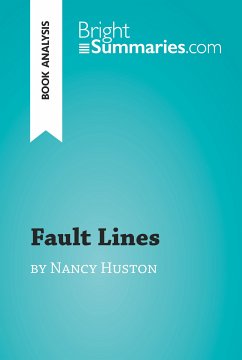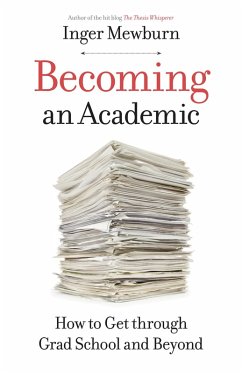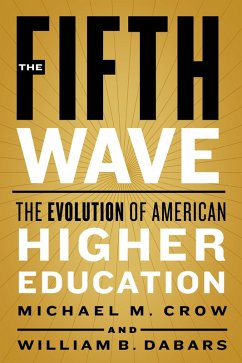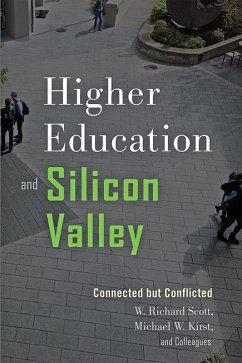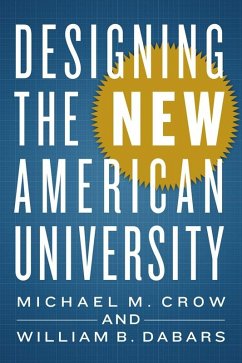
Academic Fault Lines (eBook, ePUB)
The Rise of Industry Logic in Public Higher Education

PAYBACK Punkte
16 °P sammeln!
How did public higher education become an industry? This unprecedented account reveals how campus leaders and faculty preserved the vitality and core values of public higher education despite changing resources and expectations.American public higher education is in crisis. After decades of public scrutiny over affordability, access, and quality, indictments of the institution as a whole abound. Campus leaders and faculty report a loss of public respect resulting from their alleged unresponsiveness to demands for change. But is this loss of confidence warranted? And how did we get to this poin...
How did public higher education become an industry? This unprecedented account reveals how campus leaders and faculty preserved the vitality and core values of public higher education despite changing resources and expectations.American public higher education is in crisis. After decades of public scrutiny over affordability, access, and quality, indictments of the institution as a whole abound. Campus leaders and faculty report a loss of public respect resulting from their alleged unresponsiveness to demands for change. But is this loss of confidence warranted? And how did we get to this point? In Academic Fault Lines, Patricia J. Gumport offers a compelling account of the profound shift in societal expectations for what public colleges and universities should be and do. She attributes these new attitudes to the ascendance of "e;industry logic"e;-the notion that higher education must prioritize serving the economy. Arguing that industry logic has had far-reaching effects, Gumport shows how this business-oriented mandate has prompted colleges to restructure for efficiency gains, adopt more corporate forms, develop deeper ties with industry, and mold academic programs in the interest of enhancing students' future employment prospects. She also explains how industry logic gained traction and momentum, altering what constitutes legitimacy for public higher education.Yet Gumport's narrative is by no means defeatist. Drawing on case studies of nine public colleges and universities, as well as more than 200 stakeholder interviews, Gumport's nuanced account conveys the successful efforts of leaders and educators to preserve and even strengthen fundamental public values such as educational access, knowledge advancement regardless of currency, and civic responsibility. Ultimately, Academic Fault Lines demonstrates how intrepid faculty and administrators engaged their communities both on and off campus, collaborating and inventing win-win scenarios to further public higher education's expanding legacy of service to all citizens while preserving its centrality to society and the world.
Dieser Download kann aus rechtlichen Gründen nur mit Rechnungsadresse in A, B, BG, CY, CZ, D, DK, EW, E, FIN, F, GR, HR, H, IRL, I, LT, L, LR, M, NL, PL, P, R, S, SLO, SK ausgeliefert werden.




